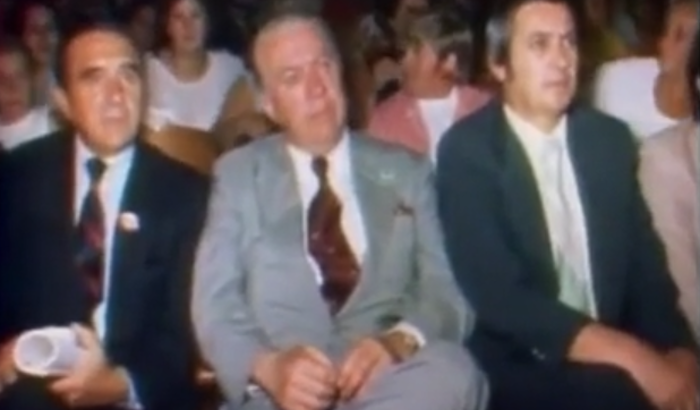
I know this is controversial, but as we look to “dismantle racism,” we should start with cleaning our own house first
The Boston City Council’s history of racism is an important issue that I’m sure will be uncomfortable for some of its current elected members to address, as well as for the community at large. I have a unique perspective; not only am I a true child of Boston with a passion for history and the memory of an elephant, but as a former Boston City Council employee (1997 – 1998) I witnessed firsthand, saw with my own eyes, and heard with my own ears how underlying racial tensions rear their ugly heads at City Hall.
As members of the Boston City Council battle over critical issues, often pertaining to race and splitting along racial lines among councilors, it’s high time to address the body’s long incivil history. In my time, there were almost literal fist fights in the chambers and in hallways over contentious issues such as affirmative action, education, and contracts with firefighters and police unions. My experience was unique; I was the first person to work in City Hall with dreadlocks, and also organized the first-ever City Hall Black History Month celebration. Both of those factors exposed me to an undercurrent of racism in the building; I was eventually targeted for my organizing efforts and creation of an email list with all city employees of color. My actions were called “divisive” and “subversive,” and the councilor I worked for was pressured to fire me.
Because of those experiences, and because of how countless other Black people have been treated by members of the body, I am asking that the Boston City Council take a look at its own history and support the de-naming of the Albert “Dapper” O’Neil Hearing Room in City Hall and the James “Jim” Kelly Bridge in South Boston.
Increasingly, people are discussing the removal, “de-naming,” and “re-naming” of symbols, statues, flags, streets, sports teams, etc. which honor people who did things or espoused ideas which are no longer socially acceptable. Here in Mass, there is talk of the state flag having inappropriate and oppressive imagery. There is also a debate over the renaming of Faneuil Hall, due to Peter Faneuil’s connection to the slave trade, and an ongoing controversy over the future of the decapitated statue of Columbus in the North End. Of course, we also recently experienced the renaming of Dudley Square to Nubian Square, while people called foul on Red Sox Nation forcing even Tom Yawkey to take a hit (sorry, couldn’t resist).
In Boston, we do not need to look back hundreds of years to find perpetrators of flagrant racism. The Boston City Council has been a hotbed of bigotry for decades, with former members Louise Day Hicks, Kelly, and O’Neil famously open about their hatred of Black Boston, and the latter two alleged to have been made “honorary” members of the KKK. During my time working for City Councilor Gareth Saunders, I personally heard both O’Neil and Kelly use the word “nigger” on at least two separate occasions. One of those was caught on tape in the chamber; when I went to retrieve the record, I caught one of Kelly’s associates deleting it.
I encourage any councilor considering the de-naming of tributes to O’Neil and Kelly to interview former Boston City Council members Charles Yancey and Gareth Saunders about racism in City Hall. I also recommend the acclaimed historical series Eyes on the Prize II, and specifically episode 207, “The Keys to the Kingdom (1974-1980),” which shows both Kelly and O’Neil engaged in racist anti-Black organizing which included bullying, physical threats, and bricks thrown at children under the guise of anti-busing. Today, much of what they participated in, organized, and led would be labeled white supremacy or hate crimes; at the least, both incited dangerous mobs where people were actually hurt and children threatened and intimidated. As a result of their actions, many people were scarred for life and are still dealing with the trauma.
I know this is a controversial issue, but as we have “tough conversations” and look to “dismantle racism,” I think that we should start with cleaning our own house first to serve as an example. This is a teachable moment that requires introspection and courage. Times have changed. What was acceptable back then is abhorrent now.

